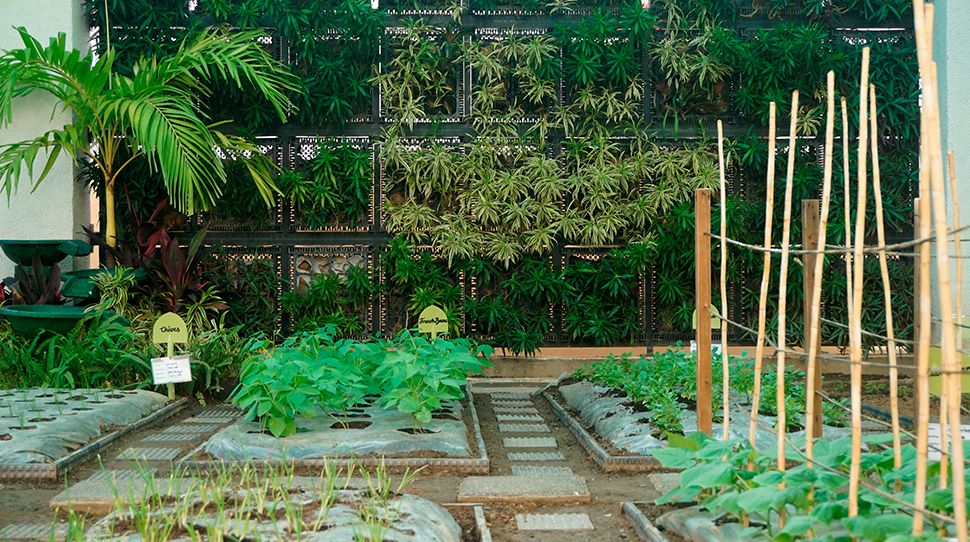

Philippine Sustainability Month was celebrated all around Metro Manila for the first time in September. The goal of this eco-conscious initiative was to bring inspiring solutions for change in supply chains focusing on areas like sustainable food sourcing, plastic reduction and water and energy management.
“All of us have to [come together and fight] these environmental threats to save our planet,” said Christian Schmidradner, founder and CEO of Pristine Solutions and Services Inc., the initiator and coordinator of the month-long event.
“Philippine Sustainability Month aims to convene multiple stakeholders to share best practices, strengthen sustainability commitments, build capacity, multi-sectoral partnerships [and] collaborations,” Schmidradner continued. “The multi-stakeholder approach is crucial as we all have to work together, governments, NGOs [non-government-affiliated, non-profit organizations], the private sector and the consumers.”
In the Philippines, the world of hospitality is pulling its weight. In addition to being one of the biggest components of the country’s burgeoning tourism industry, the sector is well on its way toward a more sustainable and eco-friendly approach to providing local and international guests the luxury they deserve.
Here are just some of the many ways the Philippine hospitality scene is spearheading the sustainability movement in the Pearl of the Orient.
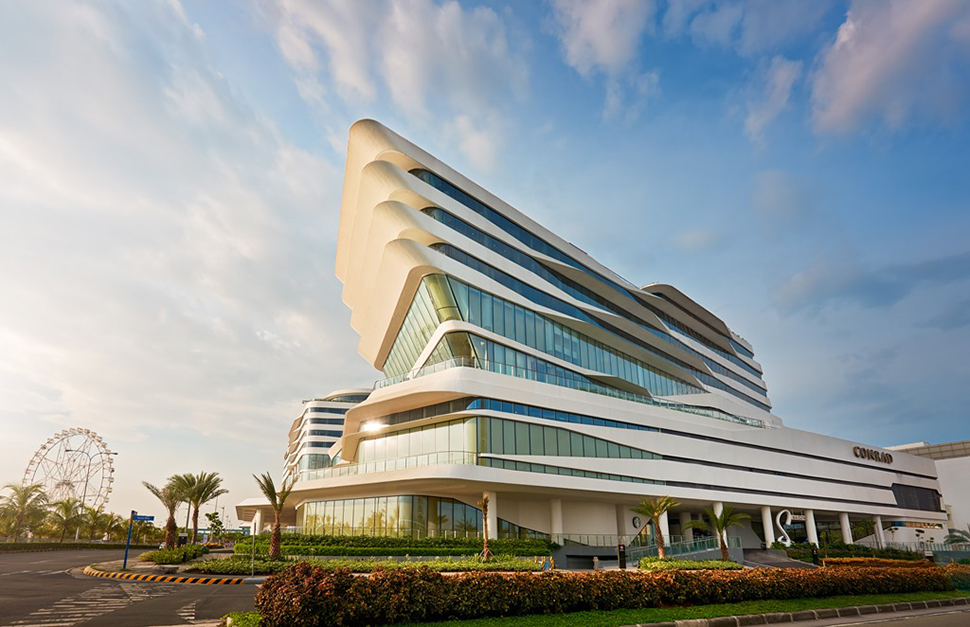
Homegrown Produce
Every day, more commercial kitchens are moving toward self-reliance by planting gardens to grow salad greens and herbs for their own use.
If you dine at Forbes Travel Guide Four-Star Sofitel Philippine Plaza Manila’s restaurant Spiral, you’ll likely enjoy produce cultivated in the hotel’s Greens by Sofitel garden. Similarly, Forbes Travel Guide Recommended Conrad Manila and City of Dreams Manila (an integrated resort that includes Five-Star Nüwa Manila) created roof deck gardens to promote healthy and sustainable gastronomy.
Biodegradable kitchen waste is also often collected and turned into compost materials to promote healthier soil and crops at these onsite greenspaces.
Some hotels in the city have established farms in nearby provinces like Tagaytay and Bulacan to supply their needs and provide employment for locals.
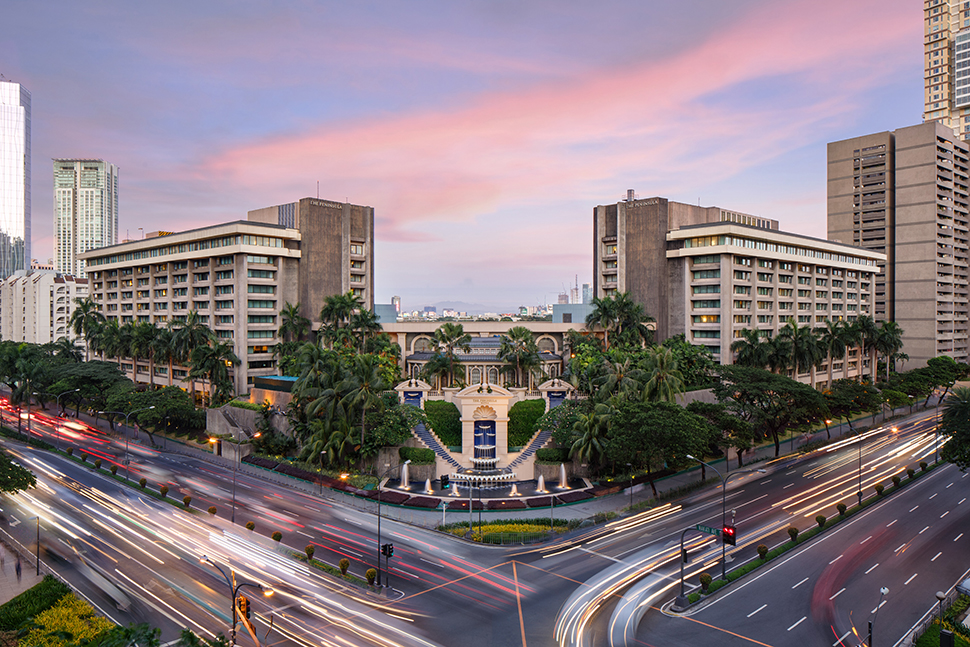
Minimizing Food Waste
Shangri-La at the Fort, Manila has found a tasty way to minimize food waste with its newest outlet, Bake House. The specialty here is the Conscious Cookie, a daily changing treat born out of various trimmings (potato chips, bacon, cookie crumbs) from other baked goods and ingredients from the property’s other restaurants.
Rather than repurpose, Five-Star The Peninsula Manila is working with the first food bank in the Philippines to donate its leftover housemade breads.
Conrad Manila also supports a food bank initiative by creating campaigns like No Waste Wednesdays and Bread for Bread (for every loaf sold by the hotel, another will be donated to support local feeding programs).
Eliminating Single-Use Plastic
There’s still a long way to go before the hospitality industry can get rid of plastics altogether, but significant steps have been taken to minimize single-use plastics from Philippine hotels.
Common practices include eliminating plastic straws, serving water in carafes rather than plastic bottles and replacing amenity kits and food containers with compostable alternatives. Conrad Manila even began swapping out plastic-wrapped candies with more nutritious (and eco-friendly packaged) dried fruits.
As the plastic-free movement gains ground in the country, you can expect more sustainably minded guest rooms and common areas in more hotels and restaurants soon.
Going Paperless
Hotels are shifting toward digitizing services to lessen the need for paper. Shangri-La at the Fort Manila offers an app that allows you to conveniently check in or out with your phone.
Some restaurants around town are even ditching traditional menus and opting for digital versions displayed on tablets.
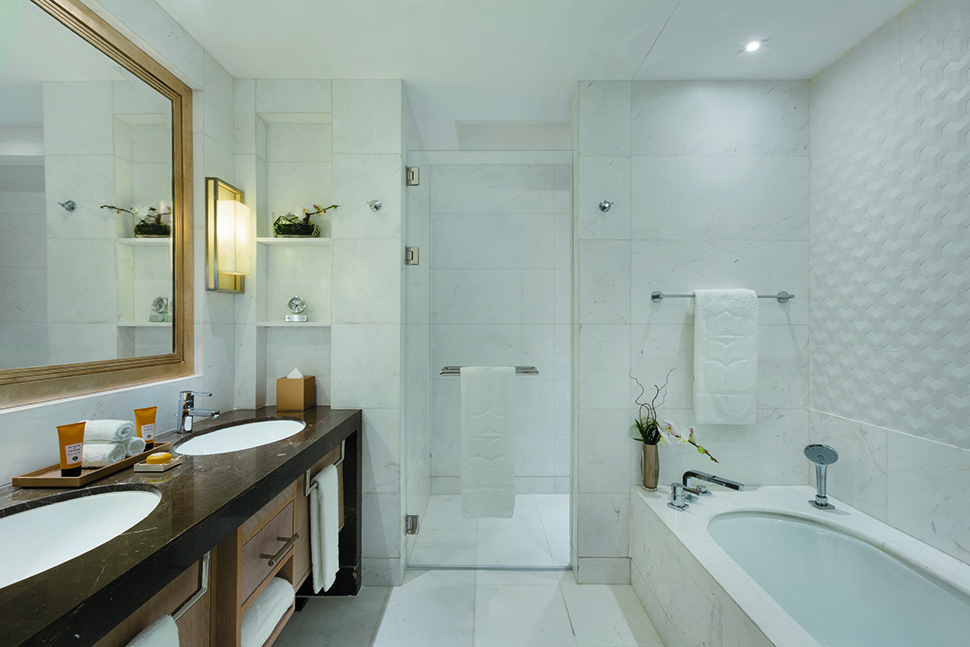
Conserving and Maximizing Natural Resources
Thanks to its tropical climate, the Philippines is a prime candidate for solar power, and high-end hotels are taking advantage. City of Dreams Manila was the first resort in the country to install rooftop solar panels, an easy way to reduce its carbon footprint.
Conrad Manila is maximizing technology to minimize the need for energy. All 347 guest rooms are outfitted with occupancy sensors that automatically switch off lights and reduce ventilation rates in unoccupied rooms. The bay-side hotel also uses dual-flush toilets and low-flow plumbing and irrigation fixtures to significantly reduce the amount of water used on a daily basis.
Shangri-La at the Fort Manila follows suit by treating graywater (water collected from washbasins, showers and bathtubs) to be reused solely as flush water for toilets in guest rooms, eliminating the need for clean, potable water to go down the drain.
Supporting Livelihood Projects for Local Neighborhoods
As part of corporate social responsibility initiatives, both local and international hotel chains have made efforts to support livelihood projects aiming to help less fortunate communities near Metro Manila.
City of Dreams’ employees regularly volunteer in coastal clean-up drives along Manila Bay as well as mangrove- and tree-planting activities in neighboring provinces of Laguna and Cavite.
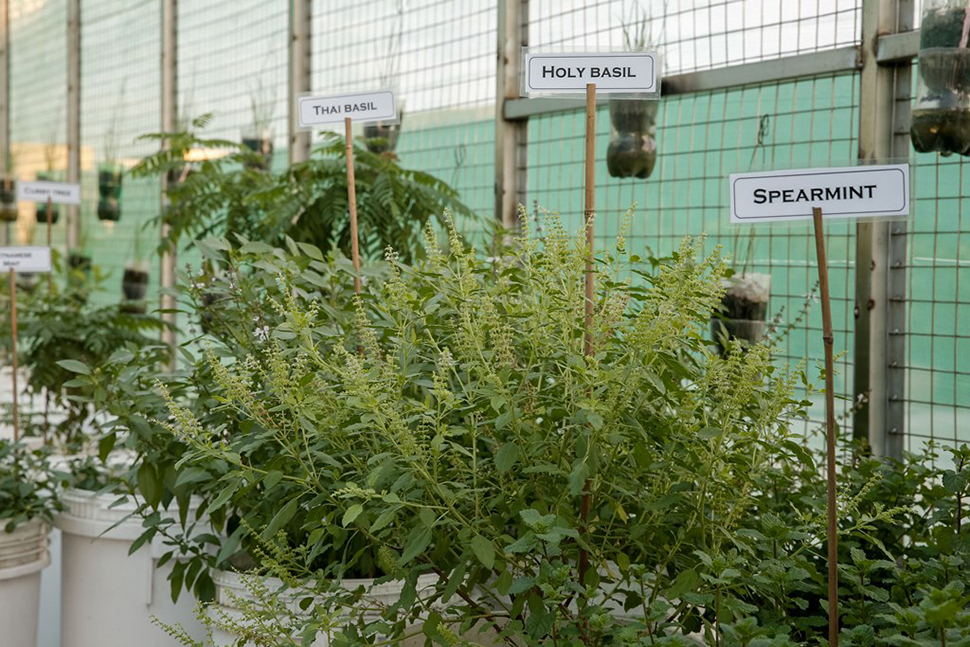
Meanwhile, Soap for Hope provides employment to the local women of Indang, Cavite. The Peninsula Manila, Conrad Manila and City of Dreams donate used soaps and the women of Soap for Hope turn it into brand new bars for selling or donating to charitable institutions in need of personal hygiene products.
The Peninsula Manila has made a name for itself as a staunch supporter of local manufacturers by donating its plastic waste to Philippine designer Maco Custodio, who upcycles these items into one-of-a-kind shoes. The hotel also offers its linens to Anthill Fabric Gallery for the weaving community of Argao, Cebu, to transform into beautiful new pieces.
Conrad Manila’s employees champion the concept of “Travel with Purpose” by being a part of community-based programs like regular meal-packing events with Rise Against Hunger that assist Marawi and other conflicted areas.
Choosing Local and Sustainable Producers
Luxury hotels continue to source from the Philippines’ local bounty. Savor some of the island nation’s world-renowned coffee at any of City of Dreams Manila’s restaurants and bars. Here, coffee lovers will only find locally grown beans exclusively processed on a state-of-the art Probat machine at The Roaster café.
The Philippines also has the world’s fifth-longest shoreline, spread across more than 7,600 islands, making it a paradise for seafood lovers. Hotels like Sofitel Philippine Plaza Manila, Conrad Manila and City of Dreams Manila make it a point to solely serve ethically sourced, sustainable seafood from local fisherfolk.
